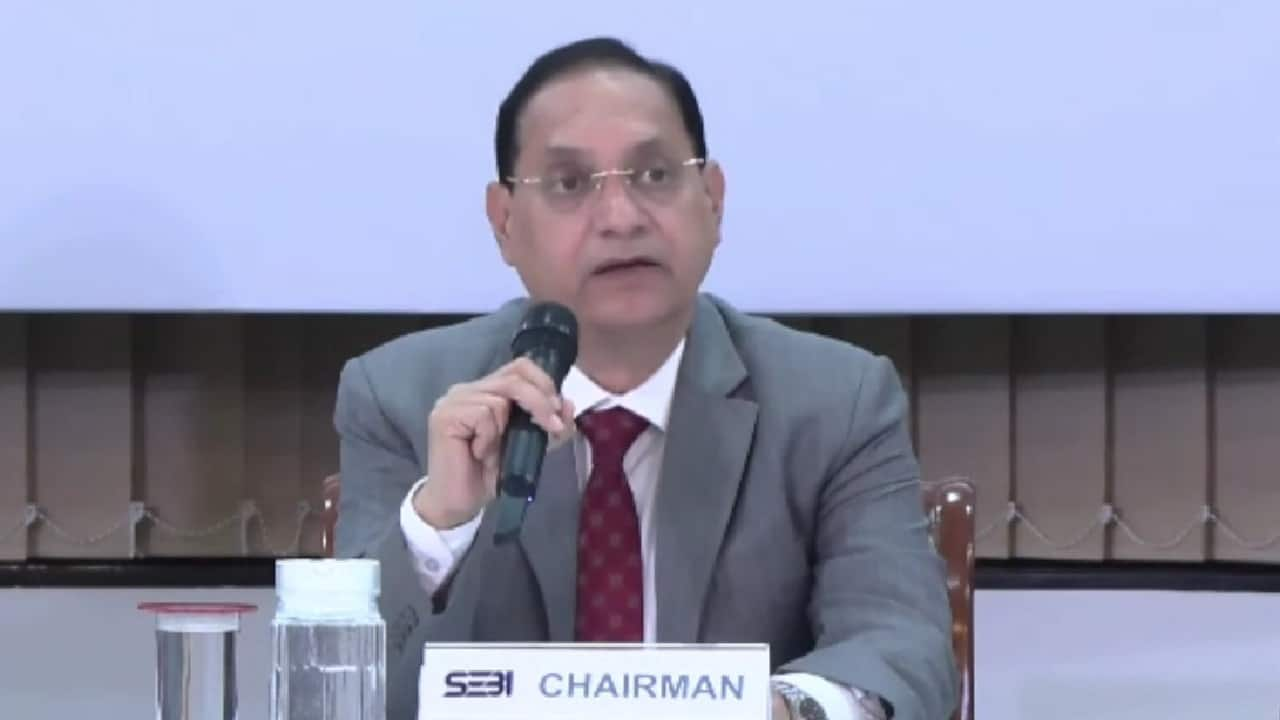 |
|
The Securities and Exchange Board of India (Sebi), under the leadership of Chairman Tuhin Kanta Pandey, is contemplating a significant shift in the regulatory landscape of equity derivatives trading. The core proposal revolves around increasing the tenure of these derivatives, a move aimed at fostering a more mature and balanced market that caters to both hedging and long-term investment strategies. The announcement, made during FICCI's 22nd Annual Capital Markets Conference in Mumbai on August 21st, served as a catalyst for immediate market reactions, particularly impacting the share prices of key players like BSE, Motilal Oswal, and Angel One. This reaction underscores the sensitivity of the market to regulatory pronouncements and the potential ramifications of policy adjustments in the derivatives space. Pandey emphasized that this is currently a 'thought process' and that no decisions would be made without extensive consultation with industry stakeholders. This commitment to a collaborative approach is critical, as any change in the tenure of equity derivatives can have far-reaching consequences for market participants, trading volumes, and overall market stability. The concept of 'longer tenure derivatives' hints at a departure from the current short-term focus prevalent in much of the derivatives trading activity. By extending the duration of these contracts, Sebi aims to encourage more strategic and long-term positioning, reducing the speculative pressures often associated with shorter-term instruments. However, the devil lies in the details, as the specific form, implementation timeline, and calibration of this change are yet to be determined. Pandey reiterated that a consultation paper would be released in due course, providing a formal platform for stakeholders to voice their opinions and concerns. This consultative approach is crucial for ensuring that the final policy is well-informed, balanced, and aligned with the broader objectives of market development and investor protection.
The proposed increase in the tenure of equity derivatives is not an isolated initiative but rather part of a broader effort by Sebi to refine and regulate the derivatives market. In recent times, the regulatory body has actively intervened to manage the quantum of trading in this segment, implementing measures such as limiting exchanges to one weekly contract and fixing contract expiry days. These steps reflect Sebi's commitment to safeguarding the interests of retail investors and curbing excessive speculation. While such measures have aimed to mitigate risk, they have also raised concerns among some market participants about potential impacts on trading volumes and market liquidity. The fear is that increasing the tenure of derivative contracts could further dampen activity, particularly for exchanges like BSE and broking companies. However, Sebi's rationale is rooted in the belief that a longer-term focus can enhance the quality and stability of the market, attracting a different breed of investors who are less driven by short-term gains and more interested in using derivatives for hedging and strategic positioning. The chairman specifically highlighted the need to ensure both 'quality and balance' in the F&O segment, emphasizing the critical role of equity derivatives in capital formation. This suggests that Sebi is not simply aiming to reduce trading volumes but rather to shift the composition of market participants and promote a more sustainable and less volatile trading environment. The phrase 'calibrated manner' is crucial in understanding Sebi's approach. It signals a recognition of the potential challenges and unintended consequences associated with any abrupt policy change. By adopting a phased and incremental approach, Sebi hopes to minimize disruption and allow market participants to adapt to the new regulatory framework gradually. The ultimate goal is to improve the maturity profile of derivative products, making them more effective tools for hedging and long-term investing.
Furthermore, Sebi's focus extends beyond the derivatives market to the underlying cash equities market. The regulator is actively seeking to 'deepen the cash equities market,' recognizing the interconnectedness between these two segments. Stronger cash market volumes provide a more solid foundation for derivatives trading, reducing the potential for manipulation and enhancing overall market integrity. Pandey noted the impressive growth in cash market volumes, which have doubled in the past three years. However, he also acknowledged that 'much more needs to be done' to further strengthen this segment. This suggests that Sebi may be exploring additional measures to attract more participation in the cash equities market, such as reducing transaction costs, improving market infrastructure, and enhancing investor education. The emphasis on safeguarding the interests of retail investors is a recurring theme in Sebi's regulatory initiatives. The regulator has implemented various measures to curb risky trading and reduce losses for retail investors, particularly in the futures and options (F&O) segment. This reflects a growing concern about the potential for unsophisticated investors to be lured into complex and high-risk trading strategies, leading to significant financial losses. By promoting a more balanced and sustainable market, Sebi hopes to create a trading environment that is both attractive to institutional investors and protective of retail participants. In conclusion, Sebi's proposal to increase the tenure of equity derivatives represents a significant regulatory initiative with the potential to reshape the landscape of the Indian capital markets. The success of this initiative will depend on Sebi's ability to effectively engage with stakeholders, carefully calibrate the implementation process, and address any potential unintended consequences. By fostering a more mature, balanced, and investor-friendly market, Sebi aims to enhance the long-term stability and growth of the Indian economy.
